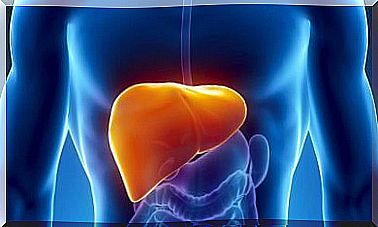Oropharyngeal Cancer Symptoms You Should Know
Since many of the symptoms of oropharyngeal cancer can be confused with other conditions, this disease should not be overlooked. The fact of not being a smoker does not negate all the risks either.

Oropharyngeal cancer is not just associated with smoking.
This disease localized in the mouth, tongue, palate and pharynx is also linked to sunlight and papillomavirus.
Also note that even if this type of cancer is not very common, it mainly appears from the age of 50.
As life expectancy increases, so does the onset of this disease. It is more common in men.
It is important to know its symptoms early, because they can easily be confused with simple herpes, canker sores or oral inflammation.
The problem is further complicated in non-smokers. When it comes to oropharyngeal cancer, many people associate it with smokers. And they think that if they are not smokers, they have no risk of developing it.
Smokers or not, we all have a risk of suffering from it.
It is therefore vital to have all the information to recognize the symptoms of this disease during the earliest stages.
Symptoms of oropharyngeal cancer
The vast majority of orophraynx cancers occur as carcinomas.
Carcinomas are a very concrete type of thin, flat scale-like cells. They are therefore not simple sores, or canker sores.
It is common for people with a fragile immune system, used to oral infections, wounds or bleeding gums for example, do not detect this prior symptomatology linked to the disease.
But if your doctor performs an appropriate exploration of the tongue or larynx area, it may be noticed.
Later, a biopsy can confirm or not the presence of cancer.
Now let’s take a look at the main symptoms.
Physical changes in the mouth
- The earliest symptom of oropharyngeal cancer is the development of small sores that do not heal.
- Likewise, it is common for red or white spots to appear on the area of the tongue, gums or even at the corners of the lips.
- It is important to know that any unusual changes that do not improve should be seen for medical attention.
Small annoyances that get worse over time
Another common feature of oropharyngeal cancer is pain when chewing or swallowing.
In particular, people who wear dentures will notice that it bothers them and causes bleeding and pain.
- And all of a sudden, talking can get painful.
- Moving your tongue or rubbing your jaw can be painful.
- The pain can even radiate to the ears.
The feeling of having a knot in the throat
This difficulty in swallowing, the feeling of always having a burn in the tonsils or even coughing up blood is something that should not be neglected.
- Be aware, however, that these discomforts can also be due to things that are not important and that the tumor developed can also be benign.
- The most important thing is to make an early diagnosis and for that, to be attentive to the changes.
The inexplicable weight loss
Most cancers cause weight loss. In the case of oropharyngeal cancer, it is common for the person to stop feeling hungry or even not be able to chew normally.
Likewise, the immune system is always weak in defenses and the weight gradually decreases.
Can oropharyngeal cancer be prevented?
As we have often said, no disease can be prevented 100%.
We can, however, control their triggers to reduce their occurrence as much as possible.
This type of cancer is linked to various factors:
- The tobacco
- The alcohol
- The papillomavirus (HPV). The one linked to throat cancer (including oropharyngeal cancer) is HPV 16.
- Ultra-violet light. Lip cancer, for example, is more common in people who work outdoors and are more exposed to sunlight.
- A poor diet and a weak immune system.
- Genetic diseases like Fanconi anemia.
Now that you know its triggers, you can take better care of your lifestyle without worrying too much.
Quitting smoking, eating a varied and balanced diet, and using sunscreens for the skin and lips is never superfluous.
To conclude, the most important thing is not to be afraid. Do not be afraid, for example, to consult your doctor for a diagnosis.
It pays to plan ahead and always remember that our health should never be secondary.









